Childlike innocence and first-love blended with dark magic and high fantasy is a staple in Chinese drama. Like Ice Fantasy (2016), Ashes of Love is also based on a novel, in this case, Heavy Sweetness, Ash Like Frost, by Dian Xian.
The Chinese title of the TV series, 香蜜沉沉烬如霜 (Xiāngmì chénchén jìn rú shuāng) could be similarly translated. Google opts for “Fragrant Honey Sinks Like Frost”, but perhaps there is an implied comma and the Chinese title could be rendered as “Fragrant Honey Sinking, Ash like Frost.” Put the comma where you want and it’s still poetic in that uniquely Chinese way.
Ashes of Love was one of China’s most ambitious and expensive TV fantasies at the time of its release mid-2018. Costume, set design and special effects are taken to the next level. Music once again is relegated to secondary importance, being recycled fairly quickly.
We are first introduced to innocent Jinmi of the Flower Tribe, played with extreme naivety by Yang Zi 杨紫, but whose portrayal gently broadens as she faces her love trials, the trials a special love token was supposed to prevent her facing.
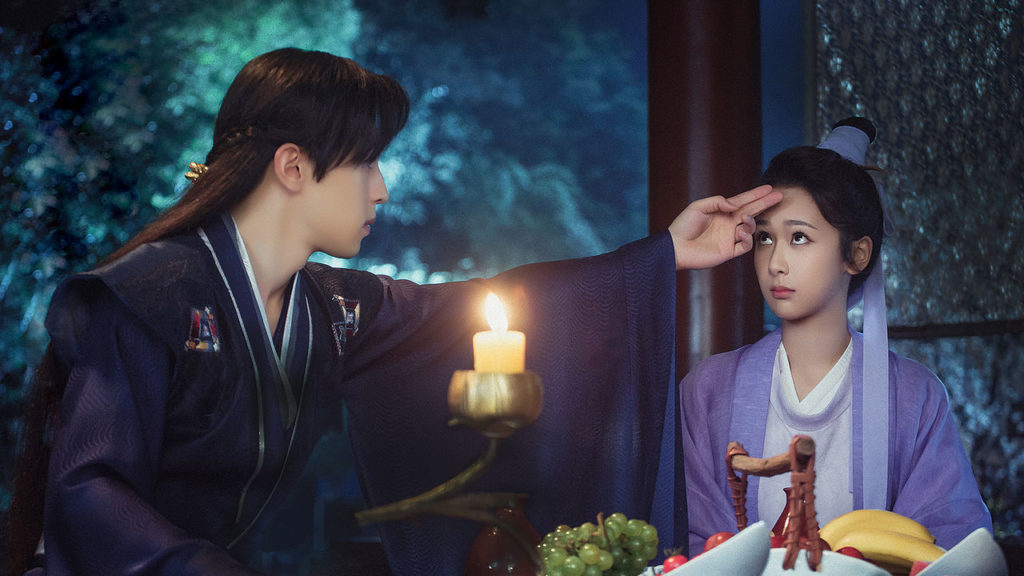
In her early days she is teased and propositioned by her loyal friend and saviour, Lord Puchi (扑哧君 Pūchī Jūn). Liao Jingfeng plays Puchi with a mischievous swagger that left me a little disappointed when it becomes evident he is not Jinmi’s main love interest. This role falls to the brooding Deng Lun (邓伦) who plays Xufeng (旭凤): immortal Phoenix, Lord of Fire and likely heir to the throne of the Heavenly Realm.
Puchi is not really Xufeng’s rival for the hand of Jinmi. This falls to Xufeng’s elder brother, Runyu (润玉), the would be crown-prince were it not for his illegitimacy. Not exactly original, and as someone who spent the first six months of his life in an orphanage, I can vouch that not all orphans are scheming, jealous, obsessives.
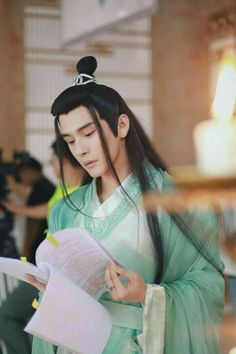
Luo Yunxi 罗云熙 as Runyu gives a sufficiently dark and aggrieved portrayal as the King’s bastard son, constantly upstaged by his more talented and popular younger brother. Runyu finally begins to lose it when it is clear Xufeng has the heart of Jinmi. The rest of the tale is 60+ episodes of Runyu trying to undermine Xufeng and Jinmi, fleshed out with a couple of subplots and backstories.
The writers do not deviate from these delineations of character that function as archetypes as to who we are clearly meant to sympathise with. Xufeng is powerful, repressed, but fair. Runyu is devious, authoritarian, and ultimately to be pitied. Jinmi is the pure object both of them strive to attain; the battle for her innocence is a quest to claim that innocence. However, Xufeng got there first and Jinmi first laid eyes on him. The Matchmaker, played with high-pitch-rapid-fire delivery by Xia Zhiyuan, insists destiny has chosen them as lovers and does all he can to guide destiny to her proper outcome.
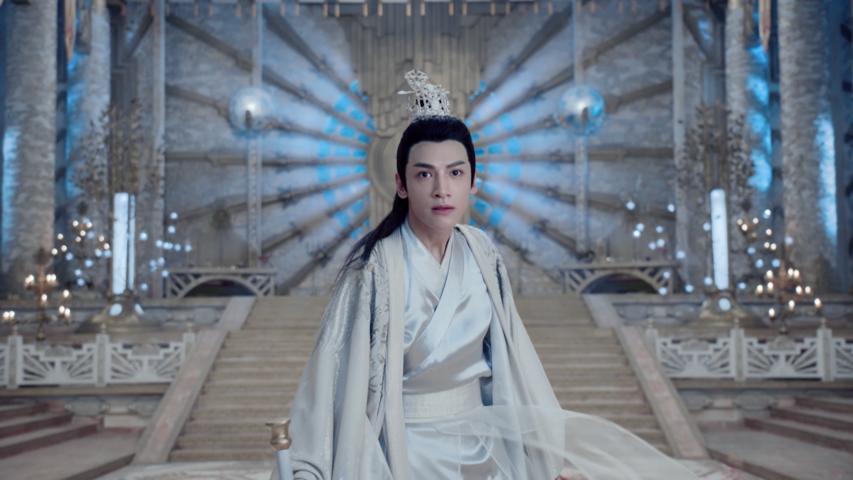
Runyu gives destiny more than she bargains for, and this gives Ashes of Love plenty of time to explore politicking and squabbling amongst the kingdoms. Less demanding viewers will be entertained by the escapades of Jinmi, Xufeng and Runyu and the challenges they face in the various realms. But it is the ambiguous, almost inverted morality of the heaven and demon realms that I found most interesting.
The Heavenly Kingdom is far from sweetness and light. Emperor Taiwei 太微 (He Zhonghua) rules with a “do what I say, not what I do” attitude, while his hawkish wife the Empress Tuyao 荼姚 (played with great indignation by Kathy Chow) seeks revenge for his marital indiscretions, not by challenging his power, but by persecuting the targets of his infidelity.
One of these targets was deceased Flower Immortal and mother of Jinmi, Zifen 梓芬 (Zhang Yanyan). So, heaven forbid, could Xufeng and Jinmi actually be indulging in one of ‘the loves that dares not speak its name’? Runyu would be delighted for that to be the case.
The romantic threads soon become as entangled as a garden with no feng shui. Like Ice Fantasy, we once again have a love pentagon. Runyu’s loyal guardian, Kuang Lu, played by the adoring Du Yuchen, throws all but the kitchen sink at him, sticking by him despite his dismissiveness.
Then there’s Suihe, in love with Xufeng and, like Runyu, determined to catch her prey by all means fair or foul. It’s often the case that the more evil the role, the better the acting, and Faye Wang is no exception to this, jilted and desperate, her outrageous scheming a perfect foil to Runyu’s more direct measures.
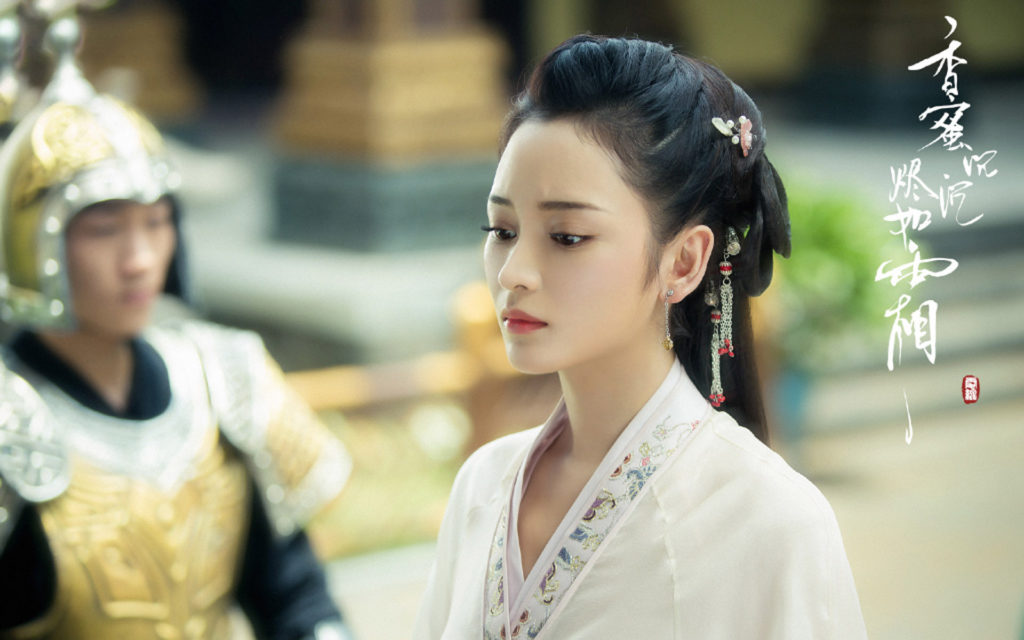
Some relief may be found in the parallel romance between Liuying 鎏英, the demon princess played by the cheeky Chen Yuqi 陈钰琪, and Muci, 暮辭 sullenly played by Zou Tingwei. Muci is blackmailed by the Heavenly Empress to assassinate whoever she pleases. Liuying will do whatever it takes to free him from his curse and claim her former bodyguard as her life partner.
With its feasting, drinking and lack of ceremony, the demon realm looks like a warmer place to live but politics infects the darkness too, with various chieftains jostling for power. In the end Ashes of Love seems to be saying that it’s not your tribe which is important, but your character, your loyalty to those closest to you.
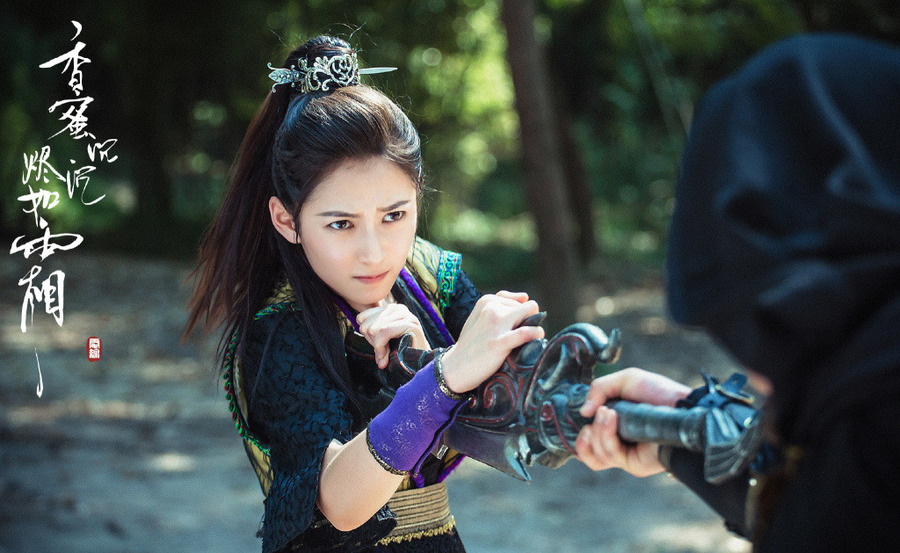
Final Verdict: 7.0
Ashes of Love is eye-catching. In the grand Heavenly Palace, the Heavenly Emperor and Empress in their opulent headdresses command attention, but keeping those grubby demons in their place is a full time job. Someone has to make the hard decisions. Even when the Lords of the Dark are just drinking and having a laugh (albeit an evil one) the heavenly realm must be ready to reign down their righteous bolts of indignation at a moment’s notice.
So, if you don’t mind your love stories over the top – enjoy the sumptuous scenery, fancy costumes and the awesome dark magic of the final battle that makes the fight over Helen of Troy seem like a backyard brawl.
